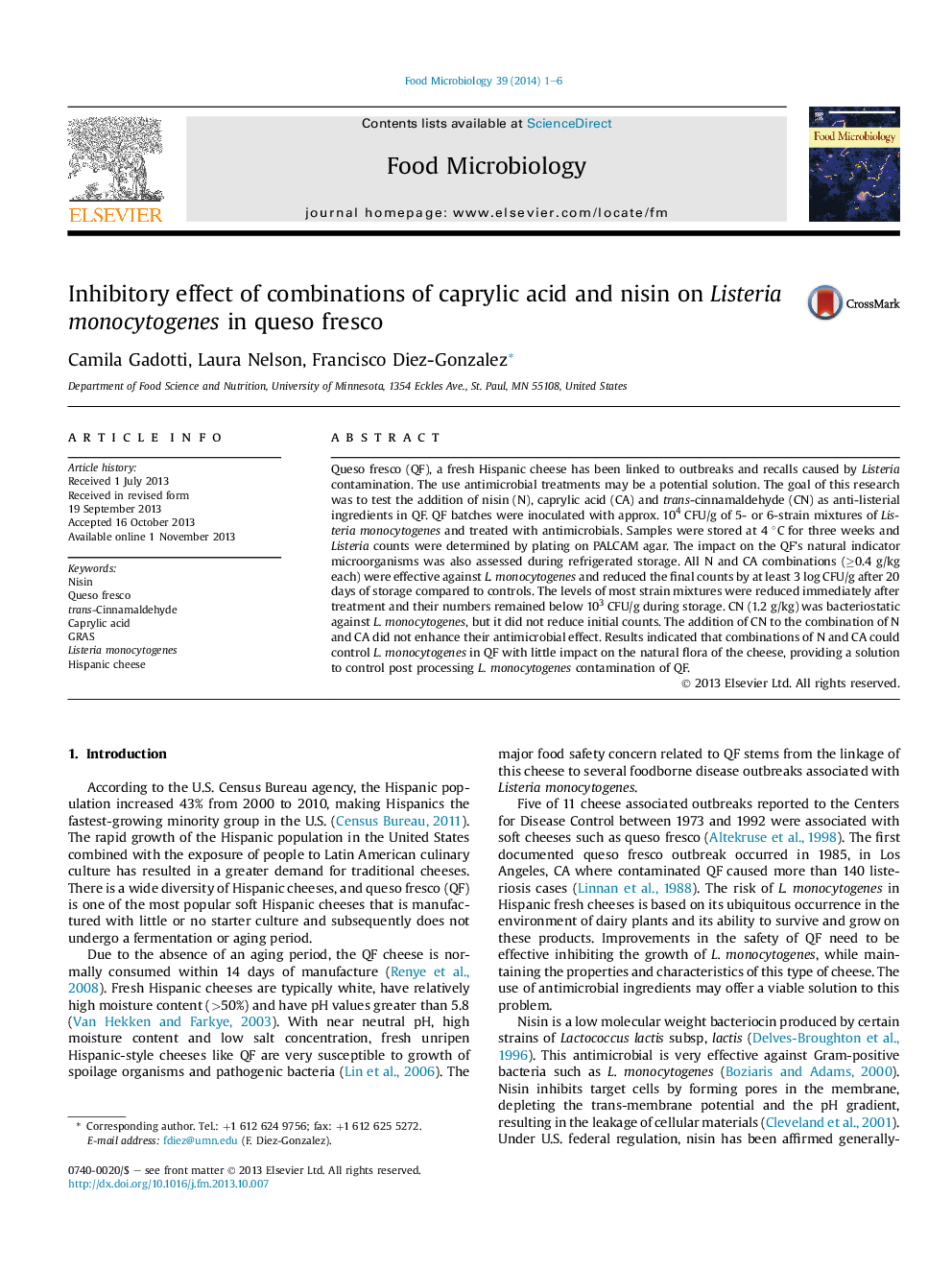| Article ID | Journal | Published Year | Pages | File Type |
|---|---|---|---|---|
| 6288725 | Food Microbiology | 2014 | 6 Pages |
Abstract
Queso fresco (QF), a fresh Hispanic cheese has been linked to outbreaks and recalls caused by Listeria contamination. The use antimicrobial treatments may be a potential solution. The goal of this research was to test the addition of nisin (N), caprylic acid (CA) and trans-cinnamaldehyde (CN) as anti-listerial ingredients in QF. QF batches were inoculated with approx. 104 CFU/g of 5- or 6-strain mixtures of Listeria monocytogenes and treated with antimicrobials. Samples were stored at 4 °C for three weeks and Listeria counts were determined by plating on PALCAM agar. The impact on the QF's natural indicator microorganisms was also assessed during refrigerated storage. All N and CA combinations (â¥0.4 g/kg each) were effective against L. monocytogenes and reduced the final counts by at least 3 log CFU/g after 20 days of storage compared to controls. The levels of most strain mixtures were reduced immediately after treatment and their numbers remained below 103 CFU/g during storage. CN (1.2 g/kg) was bacteriostatic against L. monocytogenes, but it did not reduce initial counts. The addition of CN to the combination of N and CA did not enhance their antimicrobial effect. Results indicated that combinations of N and CA could control L. monocytogenes in QF with little impact on the natural flora of the cheese, providing a solution to control post processing L. monocytogenes contamination of QF.
Keywords
Related Topics
Life Sciences
Agricultural and Biological Sciences
Food Science
Authors
Camila Gadotti, Laura Nelson, Francisco Diez-Gonzalez,
